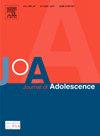Review and Evidence Gap Map of mentoring programs for adolescent males with disabilities
Abstract
Introduction
Adolescent males with disabilities face unique challenges, and mentoring programs designed for this population could support more positive long-term outcomes. In the current study, a scoping review of empirical research on such programs was conducted. The review was intended to capture the characteristics of existing mentoring program for males with disabilities and map those characteristics in a way that sheds light on the overall status of the field.
Methods
The review included different types of mentoring (e.g., adult to child, peer to peer, etc.) as long as the program explicitly defined the formation of a long-term relationship between mentor and mentee. The search identified 21 relevant studies that were categorized using four dimensions: 1) Setting (i.e., school/after school, community-based, on-line/virtual, or mixed); 2) Sex (i.e., males only or mixed males/females); 3) Outcomes (i.e., academics, social-emotional skills, health, transition from high school, or program implementation); and 4) Evaluation methodology (i.e., experimental, nonexperimental, or qualitative). The findings are summarized in an Evidence Gap Map.
Results
Only three studies used an experimental design, although they were able to demonstrate significant promise in promoting positive outcomes for youth with disabilities. Beyond these studies, however, there was little evidence supporting program efficacy for males with disabilities, as most studies in the sample were nonexperimental in nature.
Conclusions
Overall there are few mentoring programs that target this population, and experimental research on programs that target academic and health outcomes is particularly lacking.

 求助内容:
求助内容: 应助结果提醒方式:
应助结果提醒方式:


